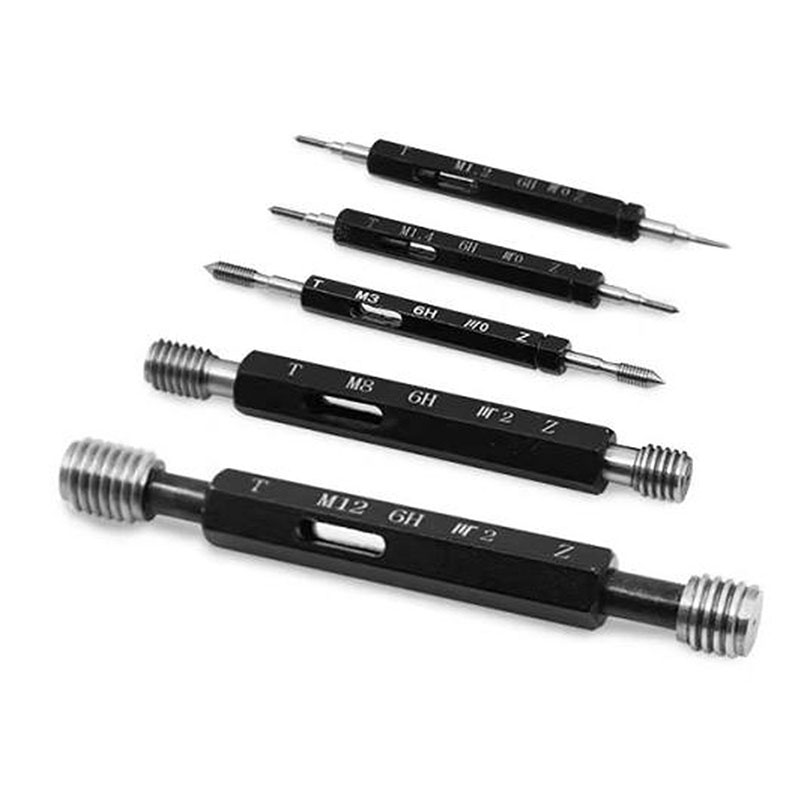Types of Thread Gauges
2024-07-13
Thread gauges are precision tools used to measure and verify the pitch diameter and thread form of threaded fasteners such as bolts, screws, and nuts. They ensure that the threads conform to standardized specifications and tolerances. Here’s an overview of thread gauges and their types:
Types of Thread Gauges:
1. Go/No-Go Gauges:
- Purpose: Used to check if the threads on a part are within acceptable limits.
- Components:
- Go Gauge: Checks the minimum allowable diameter and pitch of the thread.
- No-Go Gauge: Checks the maximum allowable diameter and pitch. If the part fits the No-Go gauge, the threads are too large and out of tolerance.
2. Ring and Plug Gauges:
- Ring Gauge: Used to check the external threads on parts such as bolts and screws.
- Plug Gauge: Used to check internal threads in nuts or holes.
3. Thread-Checking Gauges:
- Single-Ended: Designed for specific thread types and sizes, often calibrated to ensure accuracy.
- Double-Ended: Includes both Go and No-Go ends on the same gauge for convenience and efficiency in checking threads.
How They Work:
- Measurement: The gauge is placed over or into the threaded part, and the fit with the threads is assessed against the Go and No-Go standards.
- Criteria: Threads must pass the Go gauge and fail (not fit) the No-Go gauge to be within tolerance.
- Accuracy: Thread gauges are precision instruments, typically calibrated to national or international standards (e.g., ISO, ANSI/ASME) to ensure accuracy and consistency.
Applications:
- Manufacturing: Used in production facilities to ensure threaded parts meet specified dimensions and tolerances.
- Quality Control: Essential for maintaining quality standards and ensuring interchangeability of threaded components.
- Maintenance: Used in maintenance and repair operations to verify thread integrity and assess wear or damage.
Considerations:
- Thread Type: Different gauges are designed for specific thread types such as metric, UNC (Unified National Coarse), UNF (Unified National Fine), and others.
- Material: Choose gauges made from durable materials (e.g., tool steel) to withstand wear and maintain accuracy over time.
- Certification: Verify gauges are calibrated and certified periodically to maintain accuracy and compliance with standards.
Importance in Industry:
Thread gauges play a crucial role in ensuring the functionality, safety, and reliability of threaded assemblies across various industries, including automotive, aerospace, construction, and manufacturing. They help prevent issues such as thread stripping, misalignment, or mechanical failures due to improperly sized or shaped threads.



